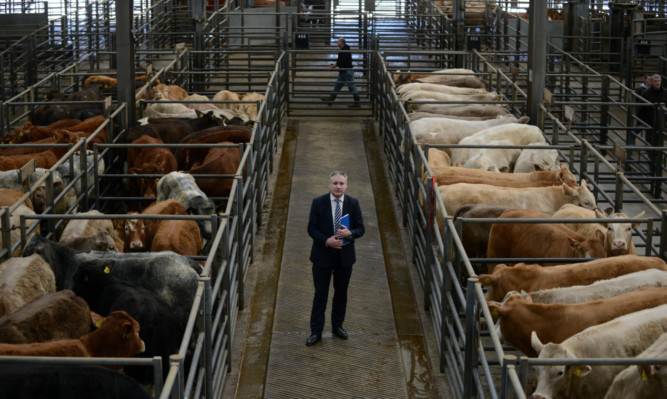Nicola Sturgeon marks one year in the job as First Minister this week. She has proven politically adept and is a smart media performer.
But what of actual delivery? What of the nuts and bolts of running a country?
To take one example, the way Ms Sturgeon’s government has dealt with farming over the last few months suggests that there is much left to be desired.
Specifically, the Scottish Government’s failure focuses on the way it has handled the new Common Agriculture Policy.
Across Europe, the new set of arrangements have proven to be complex to sort out.
All governments across Europe are finding it tough.
Not all governments, however, have turned a problem into a shambles.
Like all bureaucratic farces, the root of this involves yet another bungled IT launch.
A staggering £180 million has been spent on the new computer delivery system for the payments programme or £10,000 for each and every application.
And for what? Farmers started telling us about the enormous difficulties they were facing with it at the start of this year.
This week, the National Farmers Union of Scotland declared that it was “clearly failing”.
The response from the Scottish Government to these failings was telling.
It’s not as if rural affairs secretary Richard Lochhead wasn’t told. Back in March, our rural affairs spokesman Alex Fergusson himself a farmer called for a “plan B” to ensure farmers received their money on time.
But Mr Lochhead brushed us off.
Indeed, when another of our MSPs, John Lamont, warned of problems in May, Mr Lochhead told him to stop being “grumpy”, and boasted about how the SNP had beaten him in the general election.
It got him a laugh back then but no one is laughing now. Slowly but surely the crisis has grown.
In October, the European Commission responded by giving member states some more flexibility in handing out payments, allowing states to start distributing at least some of the money there and then.
Yet still the Scottish Government didn’t act. Only after weeks of delay and dithering, did Mr Lochhead finally come clean this week.
Only a quarter of farmers will receive the first instalment of the funds before the New Year. Other farmers will not receive a penny until March of next year.
If Mr Lochhead had changed tack last month, or in September, farmers could have had money in their bank accounts today.
Quite understandably, many farmers are furious.
And they blame Edinburgh.
As Allan Bowie of the NFU said this week: “Simply pointing to the complexity of the scheme as a reason for delays is a red herring. Scottish Government made the necessary policy decisions 18 months ago. Other parts of the UK and other member states have coped with new schemes and complexity but Scotland’s chosen delivery mechanism has not.”
In other words, there is no excuse for the mess the SNP Government has made of things. This is a problem made in St Andrew’s House.
For farmers who are only a couple of weeks away from having to turn to the bank for crisis loans, this kind of bungling has real-life impact.
It simply isn’t good enough.
More widely, some bigger lessons are to be drawn from it.
Of course governments will always make mistakes. But it’s then that ministers should have the good sense to accept matters are going wrong and find a proper working solution.
I’m sorry to say that this story has shown the Scottish Government failed in that task.
As Nicola Sturgeon cuts into her first birthday cake this week, that should set alarm bells ringing for her.
The Scottish Government is about to take on huge new powers on tax and welfare, in addition to the massive responsibility it already has.
The abject way police reform has been handled and the lack of progress in education suggests that it needs to shape up very quickly indeed.
At the very least, people deserve a basic competency from government whether it’s in Westminster or Holyrood.
And a never-changing lesson about politics is that any party which begins to look incompetent in office no matter how popular in the polls will quickly find itself being booted out.
